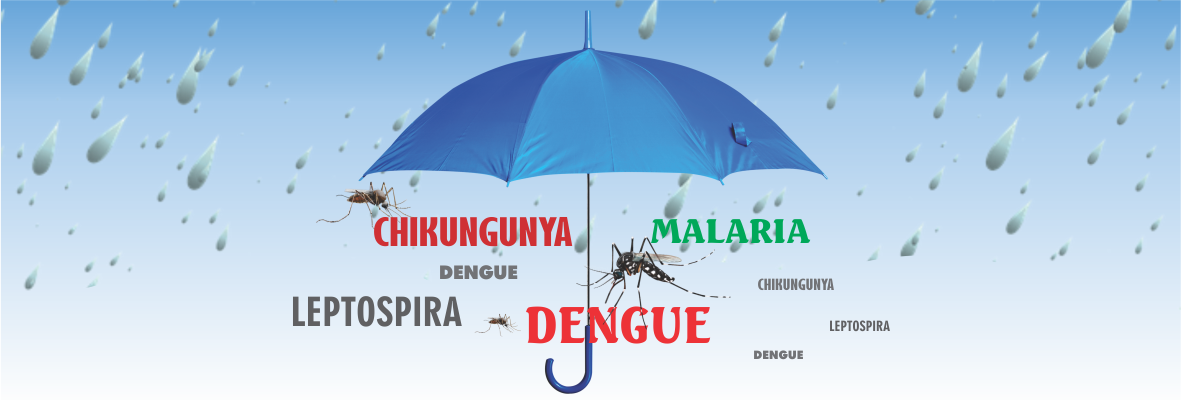Vector-borne diseases
Tropical regions and vector-borne diseases are synonymous with each other. India is no alien to it. Mosquitoes have brought in diseases for centuries. They have ravaged the population with the ferocity of these diseases. Whether it’s parasite or virus, the Mosquito vector has cropped in every Monsoon. This has created an increase in the pathogenicity of the diseases over the years. 20% of the global Malaria led mortality occurs in India.
The epidemiology, surveillance, diagnosis, and treatment of vector-borne diseases are critical in India. National Vector Borne Disease Control Programme (NVBDCP) is the apex government body. It handles the annual programs and implements strategies. In addition, many global initiatives create public awareness for improving lifestyle, hygiene, and living conditions’.
The mid-2000s saw a glimpse of Dengue and Chikungunya epidemics in the country. It paralyzed the health setup of the country. Monsoon decides the pathogenicity of Vector-borne diseases in the country. India has seen discreet monsoon patterns in the last decade. The outbreak of diseases has spread across over a more significant period. Nowadays, cases get reported even during winters. Erratic Monsoon has created many pockets of infections and given rise to co-infections. There are clinical similarities between Dengue and Malaria. Hence, diagnosis of co-infections might be either misdiagnosed or misinterpreted as mono-infections. The treatment of these co-infections is very different. A delay in instituting appropriate management can be fatal.
Scientists differ on disease control approaches. The idea was to start a national eradication program with the following features:
- Different eradication strategies for Malaria and Dengue-Chikungunya.
- Effective vector control methods with close-in monitoring during the monsoons.
- Use of Insecticide induced Mosquito nets, Fumigation clusters, and more of the same.
- Early detection and diagnosis for treatment.
J Mitra & Co. is a pioneer in rapid and reliable diagnostic solutions for the last five decades. It’s the first Indian company to introduce Rapid Test Cards for vector-borne diseases. J Mitra uses unique proteins and markers specific to the Indian population. Rapid cards of Malaria, Dengue, Chikungunya, and Leptospira perform routine and affordable testing. Malaria Antigen test kits have come to use with the ban on Antibody kits. All these products now have a leadership position in the market. ELISA kits for Dengue and Chikungunya have been the trendsetter for the market. Their performance has challenged the higher platforms even for transient infections. In addition, the company has introduced FIA testing for vector-borne diseases. It has developed (in collaboration with IIT, Madras) Quanti Dengue Cards (for NS1, IgG, and IgM). These kits are at par with PCR tests.


